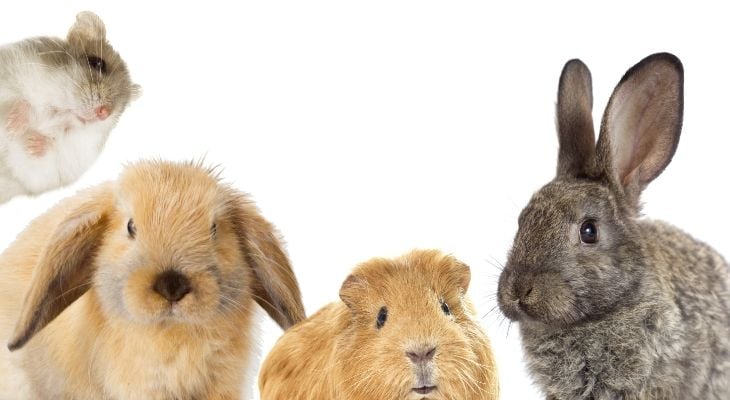Bloat and gastric torsion is a serious condition and your pet should be rushed to the emergency room if this occurs. Certain breeds of dogs with deep chests and narrow waists, such as hounds, bouvier des Flandres, or doberman pinschers are more susceptible to a syndrome of gastric torsion and bloat. This
Read more

Although small mammals are cute and tiny, they can be a big responsibility. If you’re interested in owning a chinchilla, ferret, hamster, hedgehogs, gerbils, guinea pigs, rabbits, rats, and other small mammals, it’s important to learn how to properly care for each of these furry creatures before bringing them home with you.
Consider what size, temperament, and activity level are right for your household so you can choose the option that best matches your lifestyle. Are you looking for an animal that will take kindly to being petted and interact with you? Rabbits or guinea pigs are pets that enjoy cuddling once they’re gotten used to you. Be sure to choose a small mammal that has what you’re looking for and you’ll love having it around. Check out the articles below to learn more about the general care of each of these animals.
-
Bloat and Gastric Torsion
-
Tapeworms
Tapeworms live in the digestive tracts of vertebrates as adults and often in the bodies of various animals as juveniles. In a tapeworm infection, adults absorb food predigested by the host, so the worms have no need for a digestive tract or a mouth. Large tapeworms are made almost entirely of reproductive
Read more -
Seizures
Seizures are common in dogs, but more unusual in cats. Seizures are just symptoms which can occur with many kinds of diseases. They can happen because of diseases outside the brain or inside the brain. Low blood sugar that can happen with an overdose of insulin or with a tumor of the pancreas can cause
Read more -
Ruptured Anterior Cruciate Ligament (ACL)
The rupture of the cruciate ligament is the most common knee injury in the dog. This injury has two common presentations. One is the young athletic dog playing roughly who acutely ruptures the ligament and is non-weight bearing on the affected hind leg. The second presentation is the older, overweight
Read more -
Luxating Patella
Luxating patella is a condition where the kneecap (patella) moves out of its normal position. Luxating patella is one of the most common knee joint abnormalities of dogs, but it is only occasionally seen in cats. It may affect one or both of the knees. In some cases it moves (luxates) towards the inside
Read more
32of103


